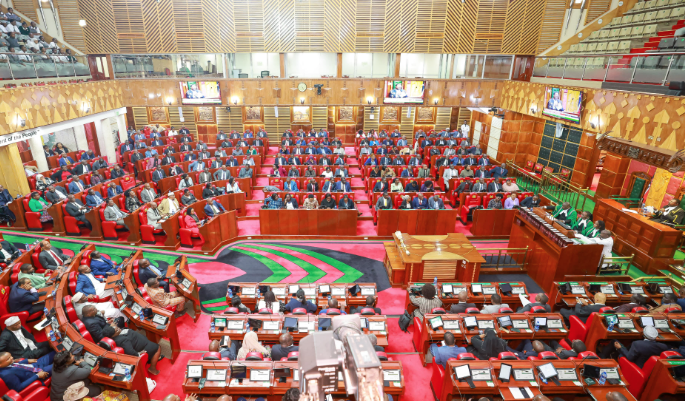

Title: Parliament Review: Key Bills passed as MPs push for accountability, reforms
One of the week’s highlights from Parliament was the signing into law of the Conflict of Interest Bill, 2023, by President William Ruto.
The new Act repeals the Public Officer Ethics Act (Cap. 185B) and introduces a consolidated legal framework for managing conflicts of interest in public service.
The law, now under the general supervision of the Ethics and
Anti-Corruption Commission (EACC), sets out stringent measures to regulate
ethical conduct in the public sector. It is expected to curb misuse of office
and strengthen integrity across government institutions.
“This new law will enhance public trust by holding public officials accountable when their interests conflict with public duties,” said a statement from the State House following the presidential assent.
Sponsored by Leader of the Majority Party, Kimani Ichung’wah (Kikuyu), the Bill reduces the term of office for Directors-General from five to three years and aligns the Kenya Roads Act and the Kenya Roads Board Act with the Mwongozo Code of Governance for State Corporations.
A key amendment under New Clause 3A replaced the term “five years” with “three years” in Section 12(4) of the Kenya Roads Board Act, a move Ichung’wah said was aimed at ensuring consistency across state agencies.
“The purpose of this amendment is to ensure consistency in the management of road agencies and compliance with the Mwongozo Code,” Ichung’wah told the House.
Supporting the amendment, TJ Kajwang’ (Ruaraka) emphasized the need for harmony across governance laws, suggesting that further amendments be made to the State Corporations Act to prevent conflicts in appointment terms.
Another significant legislative development was the passage of the County Public Finance Laws (Amendment) Bill, Senate Bill No. 39 of 2023. The Bill seeks to tighten financial controls at the county level and align devolved finance practices with the Public Finance Management (PFM) Act, 2012.
The legislation introduces reforms to improve transparency, budgeting discipline, and public participation in the management of county resources. Notably, counties will now be required to submit their budgets within synchronized timelines set alongside the national government’s fiscal calendar.
During debate on the Third Reading, Majority Leader Kimani Ichung’wah described the Bill as a “necessary step in enforcing discipline in county spending.”
“This Bill provides for better coordination between the county and national governments on matters of public finance, while also ensuring that citizens can hold their county leaders accountable,” he said.
Betty Njeri Maina (Murang’a County) seconded the Motion, applauding the amendments for promoting fiscal discipline and reducing corruption at the county level.
“This Bill will help cut down wasteful expenditure and ensure that public resources are used responsibly,” she added.
The week’s legislative momentum underscored Parliament’s renewed focus on public accountability and institutional reform.
With three major Bills either passed or enacted, lawmakers signaled their commitment to cleaner governance, enhanced service delivery, and a more transparent public service system.

















